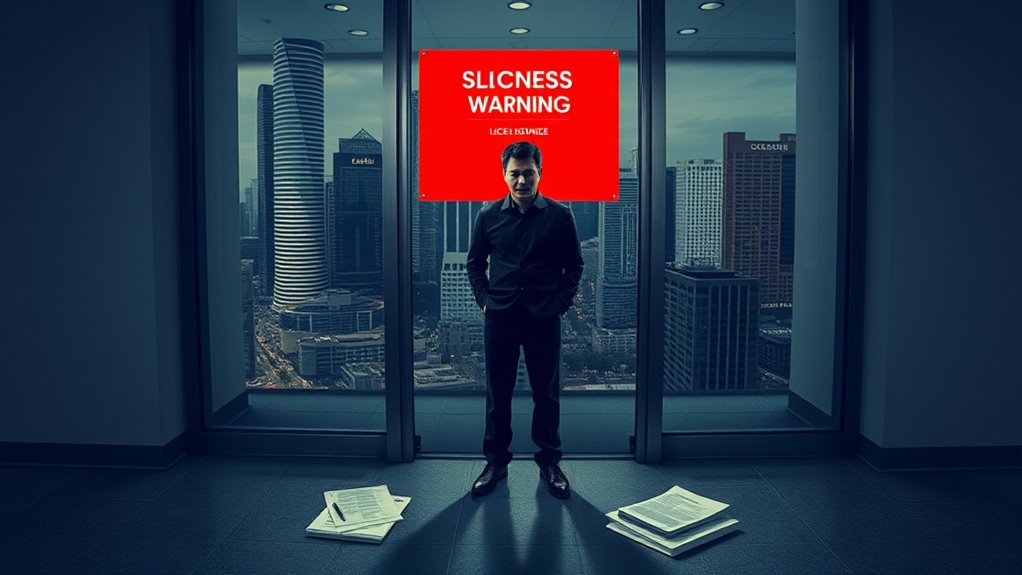Steering through business licenses, understanding compliance requirements, and ensuring operational legitimacy are critical for your success as a Singapore business owner. You might think a basic license suffices, but the reality is often more complex, especially when industry-specific licenses come into play. The application process can be intimidating, and the stakes are high; non-compliance can lead to significant repercussions. What steps can you take to simplify this process and safeguard your business?
Understanding Business Licensing Types
When starting a business in Singapore, it's crucial to understand the different types of licenses you might need. The licensing landscape can seem overwhelming, but you'll find clarity with a bit of guidance.
Initially, you've got the basic business license, which is necessary for almost every business operating in Singapore. This includes the popular sole proprietorship and partnership structures.
Next, you'll encounter specific licenses that cater to diverse sectors. For instance, if you're venturing into food and beverage, you'll need a food shop license. Likewise, if your business involves retail, a business registration might be required along with a sales tax license.
Understanding these distinctions won't only help you comply with regulations but also streamline your operations.
Additionally, the licensing process may vary depending on your business size and nature. So, it's a good idea to do thorough research or consult experts in the field to guarantee you're on the right path.
Industry-Specific Licenses
In Singapore, steering through industry-specific licenses is vital for ensuring compliance and operational success. Each industry has its own unique regulations, and understanding these can save you from costly penalties or operational delays.
You'll need to identify which licenses apply to your specific business activities and adhere to the respective requirements.
Here are some common industry-specific licenses you might encounter:
- Food and Beverage: A Food Shop License is necessary if you're starting a café or restaurant.
- Construction: A Contractor's License is obligatory for any construction-related business.
- Healthcare: Clinics and hospitals must obtain a Private Healthcare Institution License.
- Education: If you're running a tuition center, you'll require a Private Education Institution License.
- Retail: Certain products may need further permits, like liquor licenses for selling alcohol.
Navigating these licenses might seem challenging, but it's an important part of running a responsible business.
By getting the right licenses, you not only comply with the law but also build trust with your customers.
Application Process Overview

Understanding the application process for obtaining licenses can make a significant difference in your business's setup time and general success. It all starts with identifying the specific licenses required for your industry. Each sector has unique requirements, so you'll need to do your homework.
Once you've determined which licenses you need, gather all necessary documents, such as identification, business registration details, and any supplementary certifications.
Next, you'll typically submit your application online through Singapore's official government portals. This step often involves filling out forms, which can be quite straightforward—just make sure you provide accurate information. After submission, you might've to pay a processing fee, so keep your wallet handy.
Then, brace yourself for the waiting game. Processing times can vary, so patience is key. You may receive requests for further information, and it's essential to respond promptly to avoid delays.
Ultimately, once your application is approved, you'll receive your license, allowing you to operate legally and confidently. Remember, this process not only sets the stage for your business but also helps you build a strong foundation for future growth.
Compliance and Renewal Requirements
Compliance is critical for maintaining your business's legitimacy and reputation in Singapore.
It's not just about obtaining licenses; you'll also need to guarantee that you adhere to various regulations and renew your licenses on time. Staying on top of these requirements will save you from unexpected hurdles down the road.
Here are some key compliance and renewal tips to keep in mind:
- Know Your Deadlines: Keep a calendar with renewal dates marked clearly.
- Stay Informed: Regularly check for updates to regulations that may affect your business.
- Document Everything: Maintain records of all compliance documentation to guarantee you have everything at hand when needed.
- Seek Professional Help: Don't hesitate to consult legal or compliance experts for guidance.
- Train Your Staff: Confirm your team understands compliance requirements to avoid any missteps.
Consequences of Non-Compliance

Failing to comply with licensing requirements can lead to serious repercussions for your business. You might face hefty fines that drain your finances, or worse, your business could be temporarily or permanently shut down. Imagine pouring your energy into a venture only to watch it crumble because of overlooked regulations.
Non-compliance can also damage your reputation. Clients and partners may hesitate to work with a business that's not following the rules, fearing instability or legal troubles. Picture your brand as a ship steering through turbulent waters; without the right licenses, you're sailing without a compass, risking everything.
Moreover, you could encounter legal actions or criminal charges, which could land you in court, diverting your focus from growing your business. The stress of legal battles can be overwhelming, pulling you away from your passion.
Lastly, non-compliance can hinder your ability to secure funding or partnerships. Investors want to feel confident in your operations, and if they see compliance issues, they may steer clear.
Frequently Asked Questions
What Are the Costs Associated With Obtaining a Business License in Singapore?
When you're looking into costs for a business license in Singapore, you'll find fees vary based on business type. Typically, you should budget for application fees, registration costs, and possible renewal expenses down the line.
How Long Does It Typically Take to Receive a Business License?
On average, it takes about one to two weeks to receive a business license in Singapore. However, if you have all your documents in order, it can be processed even faster, often within a few days.
Can I Operate Without a License While Waiting for Approval?
You can't operate without a license while waiting for approval. Doing so could lead to penalties or legal issues. It's crucial to wait until you receive your license before starting any business activities.
Are There Any Exemptions for Small Businesses Regarding Licensing?
Oh sure, who needs licenses, right? Just open shop and hope for the best! But seriously, some small businesses do have exemptions. Check local regulations to see if you qualify—don't gamble with your future!
Where Can I Find Resources for License Application Assistance?
You can find resources for license application assistance online. Check government websites, local business associations, or specific forums. They offer guidance, templates, and tips to streamline your application process effectively. Don't hesitate to reach out!
Conclusion
Steering through the licensing landscape in Singapore might feel like a quest for the Holy Grail, but it's essential for your business's success. By understanding the different licenses, adhering to compliance, and keeping up with renewals, you can secure a thriving venture. Don't let the complexities scare you; instead, welcome them as part of your entrepreneurial expedition. With diligence and a proactive approach, you'll not only meet regulations but also pave the way for lasting success and growth.
